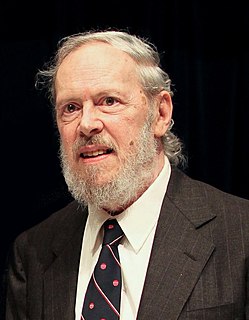A Quote by Dennis Ritchie
I'm still uncertain about the language declaration syntax.
Related Quotes
One of the principal impediments to job creation is uncertainty on the part of American companies, large and small. We've all watched as companies have sat on a lot of capital. They're uncertain about what tax policy is going to be. They're clearly uncertain about how health care costs. They're uncertain about all the regulations on capital markets.
When I'm actually writing by hand, I get more of a sense of the rhythm of sentences, of syntax. The switch to the computer is when I actually start thinking about lines. That's the workhorse part. At that point, I'm being more mathematical about putting the poem on the page and less intuitive about the rhythm of the syntax.
Syntax is the study of the principles and processes by which sentences are constructed in particular languages. Syntactic investigation of a given language has as its goal the construction of a grammar that can be viewed as a device of some sort for producing the sentences of the language under analysis.
It seemed to a number of philosophers of language, myself included, that we should attempt to achieve a unification of Chomsky's syntax, with the results of the researches that were going on in semantics and pragmatics. I believe that this effort has proven to be a failure. Though Chomsky did indeed revolutionize the subject of linguistics, it is not at all clear, at the end the century, what the solid results of this revolution are. As far as I can tell there is not a single rule of syntax that all, or even most, competent linguists are prepared to agree is a rule.



































